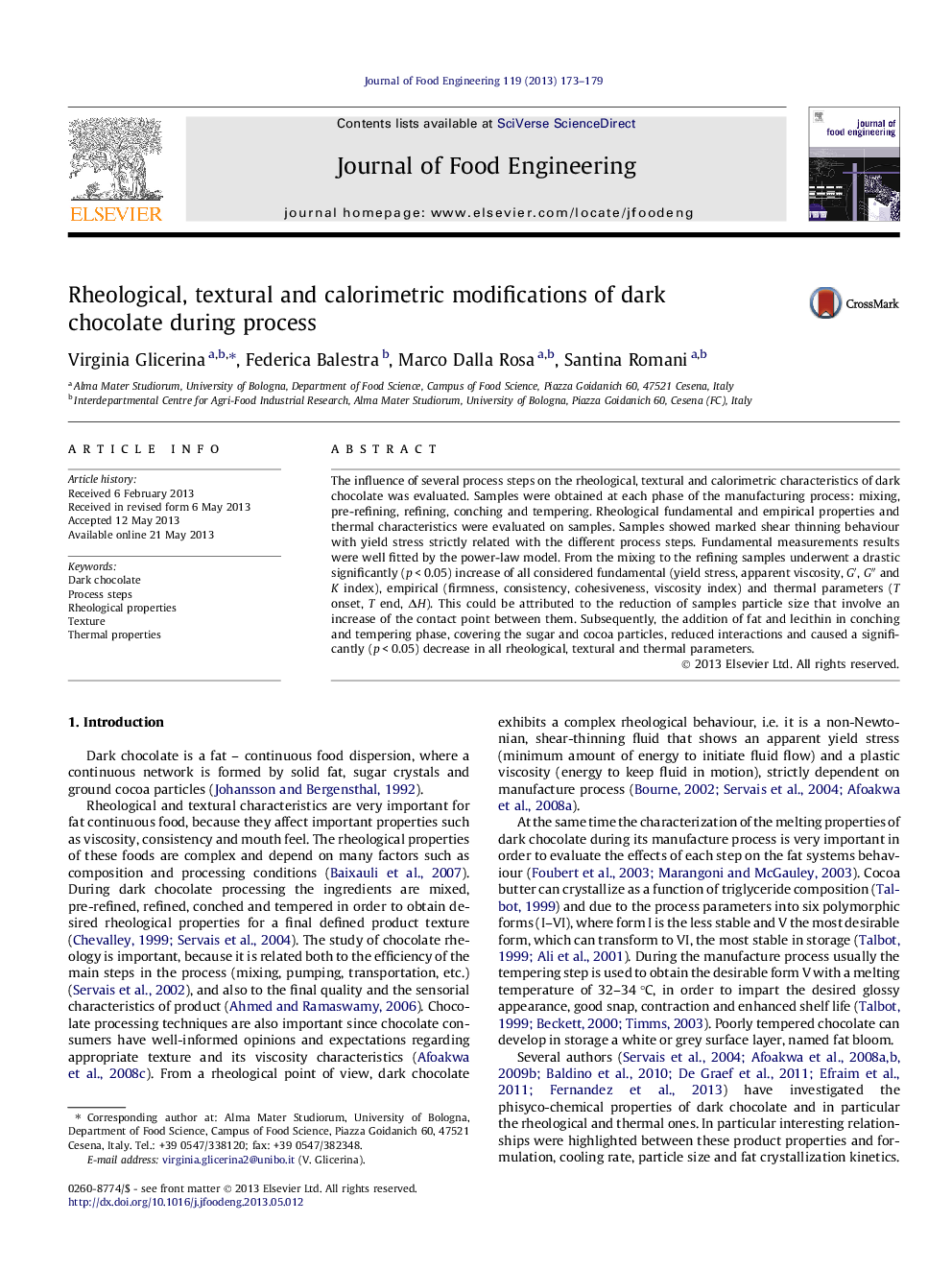| Article ID | Journal | Published Year | Pages | File Type |
|---|---|---|---|---|
| 10277466 | Journal of Food Engineering | 2013 | 7 Pages |
Abstract
The influence of several process steps on the rheological, textural and calorimetric characteristics of dark chocolate was evaluated. Samples were obtained at each phase of the manufacturing process: mixing, pre-refining, refining, conching and tempering. Rheological fundamental and empirical properties and thermal characteristics were evaluated on samples. Samples showed marked shear thinning behaviour with yield stress strictly related with the different process steps. Fundamental measurements results were well fitted by the power-law model. From the mixing to the refining samples underwent a drastic significantly (p < 0.05) increase of all considered fundamental (yield stress, apparent viscosity, Gâ², Gâ³ and K index), empirical (firmness, consistency, cohesiveness, viscosity index) and thermal parameters (T onset, T end, ÎH). This could be attributed to the reduction of samples particle size that involve an increase of the contact point between them. Subsequently, the addition of fat and lecithin in conching and tempering phase, covering the sugar and cocoa particles, reduced interactions and caused a significantly (p < 0.05) decrease in all rheological, textural and thermal parameters.
Related Topics
Physical Sciences and Engineering
Chemical Engineering
Chemical Engineering (General)
Authors
Virginia Glicerina, Federica Balestra, Marco Dalla Rosa, Santina Romani,
